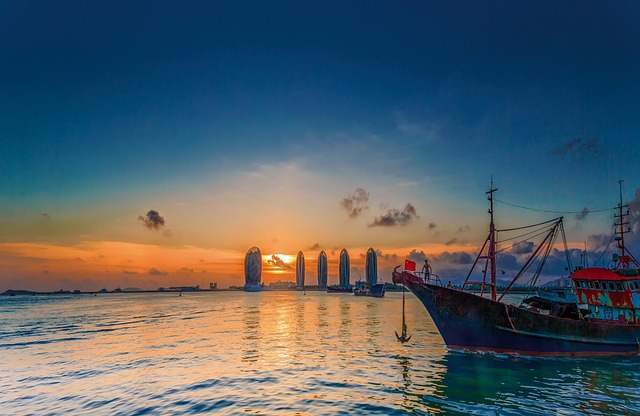Real estate drives urban growth, shaping cities' physical and economic structures through market forces. With rapid urbanization, the industry adapts to trends like smart cities and sustainable construction for efficient expansion. Strategic investments in real estate improve infrastructure, enhance city attractiveness, and foster economic vitality with balanced land use and mixed-use developments. As demand surges and land becomes scarce, developers innovate through careful planning, sustainable practices, and dynamic design to meet evolving urban needs while minimizing environmental impacts. Businesses capitalize on the trend by investing in smart buildings, brownfield revitalization, and innovative designs, attracting eco-conscious consumers and fostering urban resilience for long-term growth.
In today’s dynamic global landscape, business growth and rapid urban development are intricately linked. This article explores how real estate plays a pivotal role in shaping cities, driving economic expansion, and creating vibrant, sustainable communities. We navigate the challenges of fast-paced development, uncovering strategies to mitigate risks and maximize opportunities. Through a focus on innovation and responsible practices, we highlight paths for businesses to thrive while ensuring urban areas remain livable and resilient for future generations, emphasizing the integral connection between real estate and urban progress.
Real Estate's Role in Urban Growth

Real estate plays a pivotal role in urban growth, as it directly influences the physical development and economic vibrancy of cities. With rapid urbanization, demand for residential, commercial, and industrial spaces surges, driving market dynamics and shaping metropolitan landscapes. The industry’s ability to adapt to changing trends, such as the rise of smart cities and sustainable construction practices, is crucial in fostering efficient urban growth.
Investments in real estate not only contribute to infrastructure development but also enhance a city’s appeal, attracting businesses, investors, and residents alike. Strategic planning involving land use, zoning regulations, and mixed-use developments ensures balanced urban expansion, addressing housing needs, improving accessibility, and promoting social equity within the growing metropolis.
Navigating Rapid Development Challenges

Navigating Rapid Development, a Challenge for Real Estate
As cities experience rapid growth and urban development, the real estate sector faces unique challenges. This surge in urbanization brings both opportunities and obstacles for businesses and investors alike. The demand for commercial and residential spaces soars, pushing property prices to new heights, especially in popular metropolitan areas. However, this rapid expansion also means limited availability of land, infrastructure strain, and increased competition among developers.
Developers must adapt to these dynamic conditions, ensuring their projects align with the evolving needs of urban dwellers and businesses. This involves careful planning, innovative design, and often, a focus on sustainable practices to meet the demands of modern cities while mitigating potential negative impacts on the environment and existing communities.
Opportunities for Sustainable Expansion

As cities continue to grow and evolve, rapid urban development presents a unique landscape of opportunities for businesses seeking sustainable expansion. The real estate sector plays a pivotal role in this growth narrative by providing the physical infrastructure that supports economic activities. With urbanization at an all-time high, there’s a growing demand for commercial spaces, residential areas, and mixed-use developments that cater to modern lifestyles and business needs.
Businesses can capitalize on this trend by investing in eco-friendly and smart buildings, revitalizing urban brownfields, and adopting innovative design strategies that enhance energy efficiency. Embracing sustainable practices not only attracts environmentally conscious consumers but also contributes to the overall resilience of cities, ensuring long-term growth and prosperity for both businesses and communities.






